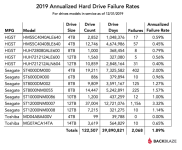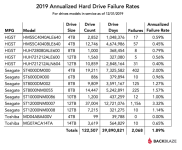I have 10 Toshiba 3TB (CMR) P300 drives and for the money... more than happy.
I am comfortable with what I have and know they are not "NAS" drives but they are 7200rpm and get the job done but have had no total failures and after 2 years, a couple of drives are showing unreadable sectors but I am pushing them beyond their intended use so no biggie.
They are not SSD silent but they are not a tractor either, with 10 in a single case, I would expect more noise.
I always find these an interesting read...
An online backup company gets through its fair share of drives so the info they have is interesting...
Backblaze Hard Drive Stats

For the most part, sticking with the big brands, despite what some may say about Brand X being ****, Brand X never failed me, there is always someone who will say the opposite.
The tech has just matured to such a point where it is as stable as anyone can make them.
Go with the drives you need for the price you can afford, just avoid SMR drives.
I would suggest looking at AMD as an option. Most people suggest "Go Intel, they are more stable" but the reality is, this is just a default, legacy mindset. AMD are making headway into the Enterprise market and it is becoming more accepted to use AMD in the server space once dominated by Intel.
It has to be remembered, companies do not refresh servers each year, it is a slow process but the numbers are climbing in AMD's favour.
I only mention this as I have seen consumer AMD boards with a shed load of SATA ports on them, the Intel chipsets always seem lite on SATA ports.
Ultimately though, something with a lower power draw the better while keeping optimum efficiency. Also, do not skimp on the heastink/fan. I would suggest Noctua for a 24x7 scenario but I am biased.
Sure, you can add seperate SATA controllers (can be pricey) but you need to factor that into how many expansion slots your board has and what your future (if any) upgrade plans are. You never have enough storage/backup space.
Some MATX boards have 2 SATA ports and worse, 2 DIMM slots.
Avoid MATX boards and go for a mid tier ATX motherboard with decent power management/components.
If your Mobo does not have an Intel NIC, BUY AN INTEL NIC.
Just my two cents. Have fun.



